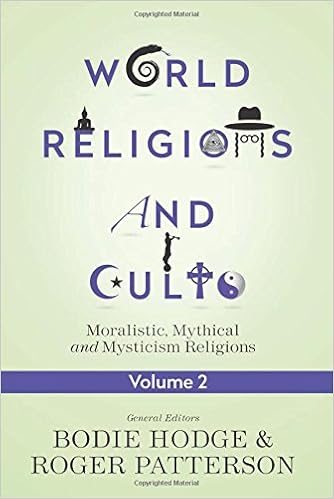Trinitarianism
Definition
Trinitarianism is the philosophy that there is only one God in terms of essence or being; and that the one God is revealed through three eternally distinct persons, specifically, the Father, the Son (Jesus of Nazareth), and the Holy Spirit. Trinitarianism is unique to Christianity.
Keywords: Trinitarianism, Christianity, God, One, Three, Persons, Father, Son, Holy Spirit.

Gilbert Guttlebocker, Defender of Dragons
Riveting, yet absurd; romantic, yet innocent; Gilbert Guttlebocker, Defender of Dragons is a little Roald Dahl, a little Harry Potter, and a little Chronicles of Narnia, all rolled into one. Timothy McCabe collaborates with the great Benedict Ballyhoot to bring you the novel of the century!

In Printed Form
Along with numerous other authors including Don Landis, Bodie Hodge and Roger Patterson, Timothy McCabe contributes analyses of various world religions and cults in this volume from Master Books.
Other Writings
"Was Jesus crucified at the third hour? Yes: Mark 15:25 No: John 19:14-15. Which would you pick, and why?"
Here are the relevant texts (from the NASB): John 19:14 Now it was the day of preparation for the Passover; it was about the sixth hour. And he said to the Jews, "Behold, your King!" Mark 15:25 It was the third hour when they crucified Him. Sometimes, hand-written copies of the same document will not entirely agree with each other. Copies of the Bible are not immune from this. This verse in John is a case in point.
Continue reading...
"You say god cannot lie? He said that Adam and Eve would die if they ate from the 'Tree'.. yet they did not die. He said nothing about sin, he said that they would die."
Genesis 2:16-17 (NASB) The LORD God commanded the man, saying, "From any tree of the garden you may eat freely; but from the tree of the knowledge of good and evil you shall not eat, for in the day that you eat from it you will surely die." At first glance, it is difficult to see how this was true, according to the Genesis narrative. After all, the day that Adam and Eve ate from the forbidden tree, they didn't fall down dead.
Continue reading...
"How do you know your god is good, and is not actually a satan making us think he is good?"
We know this because the contrary is impossible... We know that God necessarily exists because of the impossibility of the contrary. We also know that God is good and that He cannot deny Himself for the same reason. We know that we ought to behave in a certain way, and we know that we became aware of these oughts as a result of God's personal choice. In other words, He informed us of them.
Continue reading...